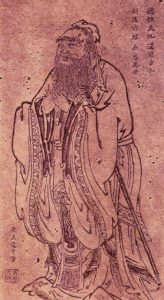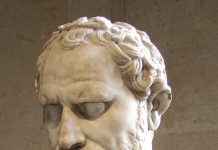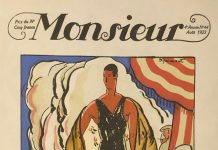I’ve always wondered why it is that modern scholars feel more certain that they know the truth about an historical event the farther away they get from it. Something about advancing technology and advancing knowledge. I wonder why nobody ever puts it down to advancing arrogance.
Now, I like reading ancient history written by ancient peoples, but I don’t like modern scholars writing secondhand accounts about why the firsthand accounts are wrong. (Be that as it may, I salute all the modern scholars who’ve written secondhand accounts definitively disproving firsthand accounts.). There is recently a book out from University of Washington press entitled The Zuo Tradition/ Zuozhuan Reader: Selections From China’s Earliest Narrative History.
It is written by three professors of various expertise in Chinese literature and history, Stephen Durrant, Wai-yee Li and David Schaberg (University of Oregon, Harvard University, and UCLA respectively). Notice that the title includes “Selections”; this is because this reader (which is the subject of this review) is a smaller version of a three volume complete translation of the Zuo Tradition. Apparently, this ancient historical text is essentially fundamental to the Chinese literary tradition. “On the most obvious level, countless idioms and allusions in the Chinese language are derived from this ancient text… Beyond such verbal echoes, Zuozhuan is a key window to the world of thought in early China. It also shapes ideas about form, structure, meaning, and representation for the historiographical and literary tradition.” This narrative history is itself a commentary on the more ancient “Spring And Autumn Annals”. Indeed, “scholars believed that the content of Zuozhuan was in place shortly after the death of Confucius and was based on oral transformation of his teachings about the written Annals chronicle”.
Rather, the modern scholars say it was primarily compiled, rearranged, and handed down by Liu Xin (46 BC-23 AD); “Liu Xin worked with his father… It was in the course of this work that he came upon copies of Zhuozhuan and became convinced of it superiority to other commentaries on the Annals”. This text, being a Chinese classic, is essentially Confucian in its principles. Confucius himself and his disciples have their roles to play in the narrative history. However, Confucius also acts as a commentator, elucidator, historical judge throughout the various historical narratives. That is, He and a character called “the noble man”, who is also a commentator, elucidator, historical judge. “It became conventional and official historiography to conclude chapters with the judgment of the historian, who usually refers to himself as the emperor subject or servant (chen).” Confucius and the noble man will often judge the actions of an individual within a particular narrative, and say whether or not that individual followed ritual propriety. (Ritual propriety can loosely be said, according to the book, to be social etiquette rooted in a hierarchy which was meant to keep societal harmony.)
Structurally, there is an introduction and a first chapter which are both really a scholarly guide to reading and interpreting the historical narrative of the tradition. The introduction also intensely recounts various historical particularities pertaining to the Zuozhuan (the five “social practices” from which Zhuozhuan “derives”, for an example). The first chapter, specifically, explains the logic of scholarship behind how the three translators anthologized the narrative. The remaining of the 15 chapters are various stories relating to a topic which is characteristic of that chapter. There is a chapter on women, ritual propriety, Confucius and his disciples, etc. There are excellent footnotes throughout, (and the first chapter gives translations for especially important words in the Narrative). As for the narratives themselves, they are mimetic, historic, discursive, exegetical all at once. That Confucius and the noble man offer philosophical insights on the actions and attitudes of various persons is still, I think, insightful for any modern reader. There are even elements of fantasy and magic, which, if you were a scholar, you would dismiss as “patently fictional”. I am not a scholar though, and I wallow in the fantasy and magic as much as any other part of the narrative. This book review is especially short because I refuse to dim the literary brilliance and seductive plots of any story in the book by summarizing them. The best way to read them is as they are written, in the language and spirit of their ancient authors, so I suggest you go out and buy a copy of the book as soon as possible.
It is ancient history written by ancient peoples. Ten times more interesting than any history book written by modern peoples. Because there are so many different elements within the narrative—philosophical, scholarly, poetic—there is a diverse amount of wisdom separate from the conjectured fact or fiction in the Reader, but perhaps inhabiting both fact and fiction at once. As a Chinese proverb says, “A good book is the best of friends, the same today and forever.” The Zhu Tradition is well-constructed, excellently and simply translated, and Chinese culture is flamboyantly interesting: this is the stuff which excellent books are made on.
The Zuo Tradition/ Zuozhuan Reader: Selections From China’s Earliest Narrative History is $30 (paperback) or $95 (hardcover) from University of Washington Press.














